Three days in Hortobágy
With Piero Venturi and his friends we spent three days in the Hortobágy and the surrounding area. Within this three days the weather was perfect: suny and warm, indeed a bit too warm for the season.
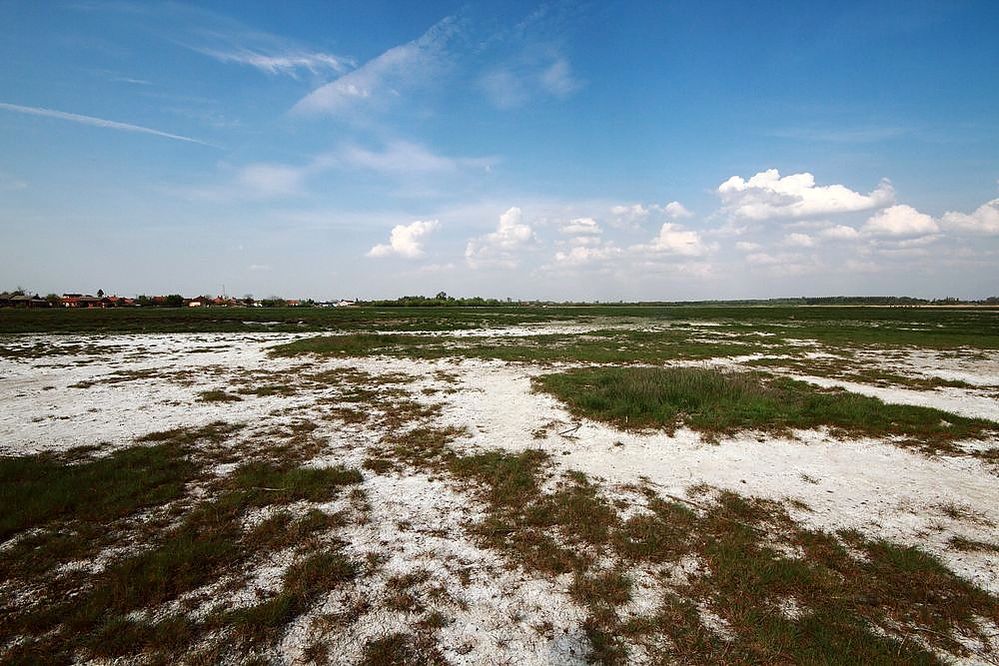
Alkaline grassland Photo: Simay Gábor
In this nice spring weather we saw Great Bustards displaying, Saker Falcons mating and we observed a family party of Moustached Warblers. Around the temporary ponds and marshes, which remaind after the heavy rains of the last year, thousands of waterbirds were feeding. Breeding plumaged (and even displaying) Ruffs in the biggest numbers, but we also seen a few Mars Sandpipers and the first Curlew Sanpipers of the season. All three species of marsh terns were around in good numbers, Black-necked and Red-necked Grebes were building their nests, Bitterns were displaying in the open and Ferruginous Ducks were numerous. We even managed to read the code of a coloreringed Mediterranian Gull.
Syrian Woodpecker was buisy to carry food to its nesthole, while in the forest we saw Black, Middle Spotted and Lesser Spotted Woodpeckers along with Short-toed Treecreeper and Collared Flycatcher.
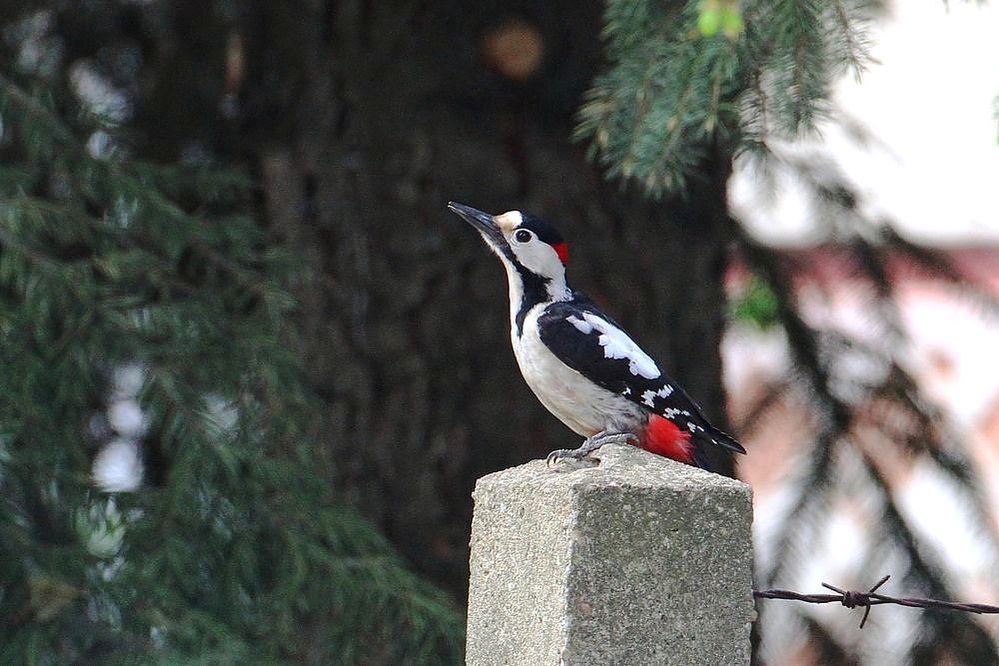
Male Syrian Woodpecker Photo: Simay Gábor
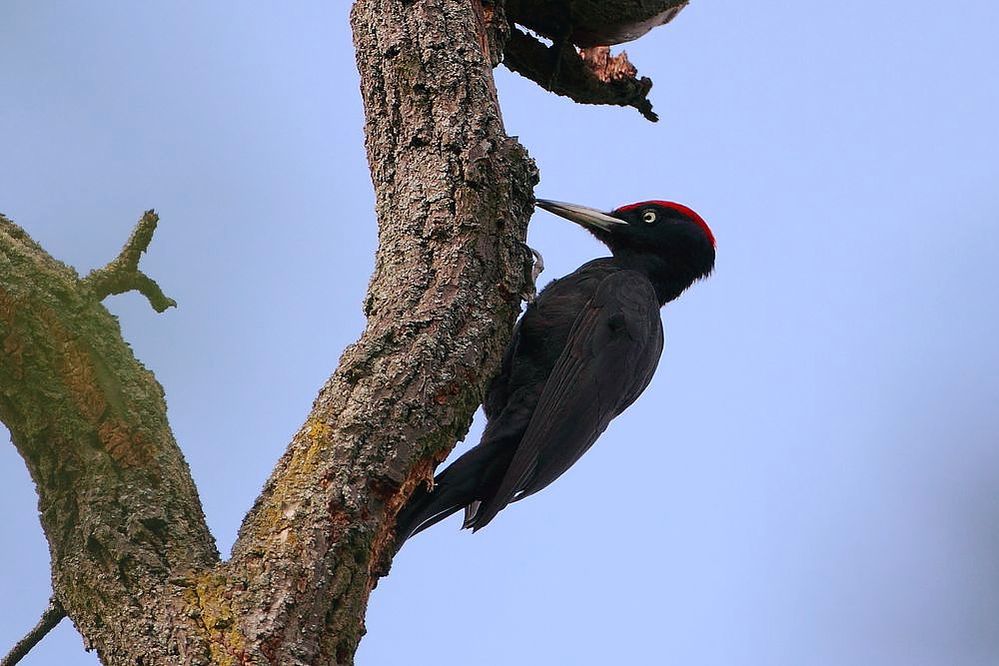
Male Black Woodpecker Photo: Simay Gábor
Sakertour team
2011 Spring in full swing
We have terrific spring weather since 15th of April and new birds arriving day by day! There are still 54 Lesser White-fronted Geese on the Hortobágy and the Marsh Sandpiper migration was peaking too (up to 23 in a flock in the Hortobágy).
Gábor Simay has found a breeding plumaged female Wilson´s Phalarope which is the undoubted star bird of April yet. More info here.
Last weekend was the start of both the birdwatching and the photography tours! We had Richard Smith with us for a long-weekend and you can read his experience here.
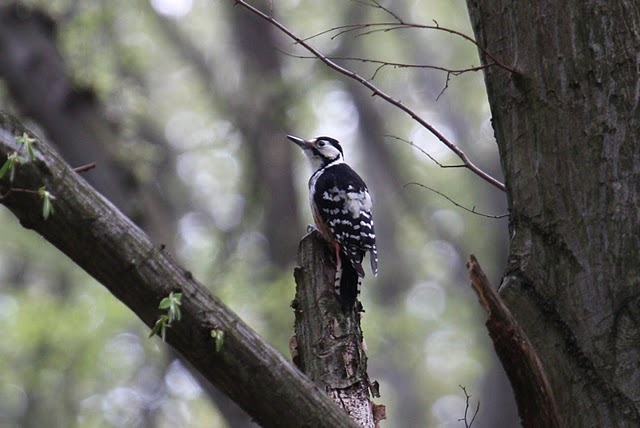
White-backed Woodpecker in the Zemplén Hills (courtesy of Richard Smith)
Our partner from Switzerland started a week long hide photography holiday on the 18th and we shall be updating on the success of the tour. The hides are ready and the activity is fantastic!
Sakertour team
Early spring tour with Island Ventures
In just three action-packed days we wisited the Zemplén Hills (2 days) and the Hortobágy (1 day) with the group. Despite the limited time we managed to see most of our target species.
Just after the arrivel our first stop produced a fine adult Imperial Eagle. In the hills several further species of raptors were observed, including Black Kite, Short-toed Eagle, several Lesser Spotted Eagles, Golden Eagle, Goshawks, Hen Harrier, Merlin and among them quite a few Black Storks, most had just had arrived from their wintering grounds. The Hortobágy proved to be excellent for raptors too: White-tailed Eagle, Long-legged Buzzard, a lingering Rough-legged Buzzard and a superb Saker Falcon were all seen.
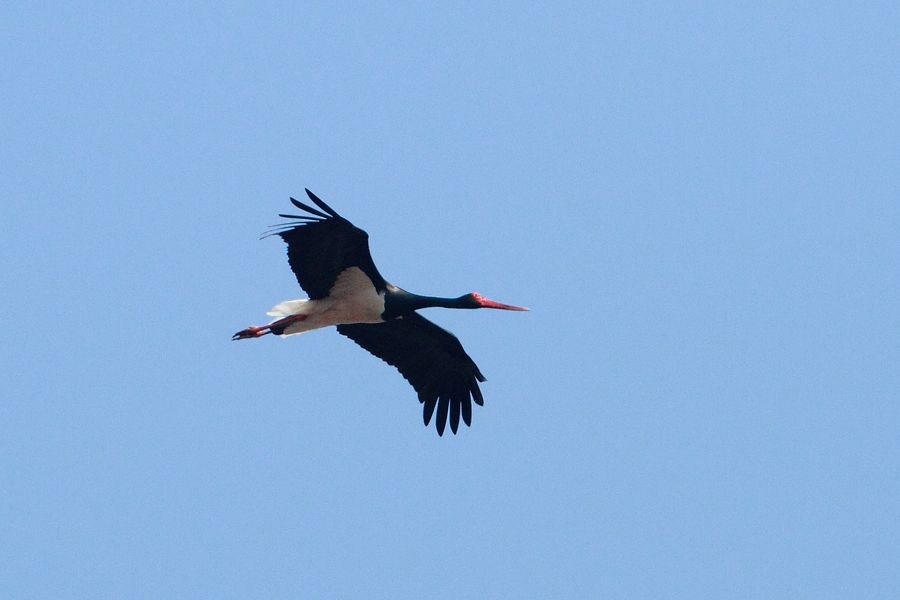
Black Srotk Photo:Simay Gábor
We saw a good variety of woodpeckers, which included the first two Wrynecks for the season. This spring Ural Owls have been present in much smaller numbers, owing to a shortage of food, but we managed to find a female in the forest, while Eagle Owl and Tawny Owl were also observed.
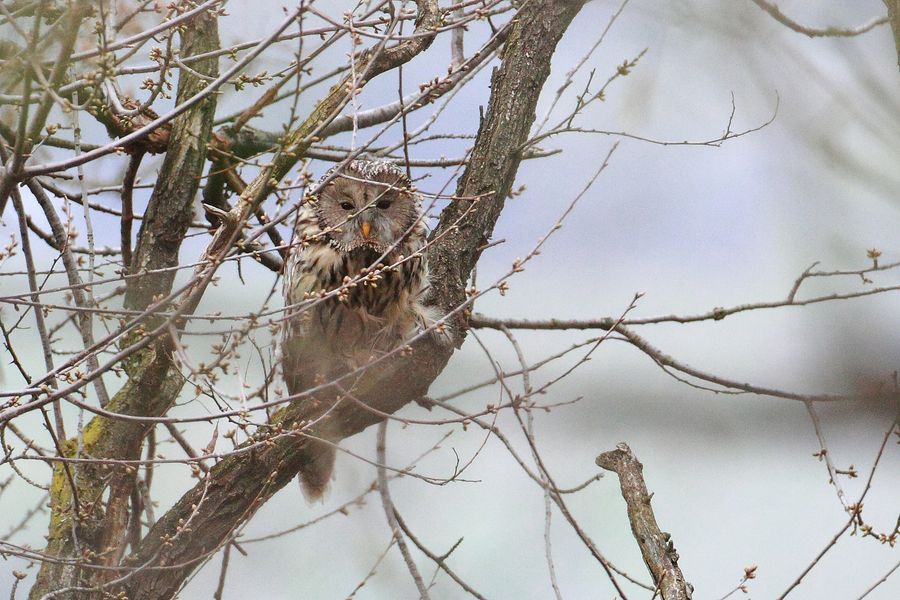
Ural Owl Photo:Simay Gábor
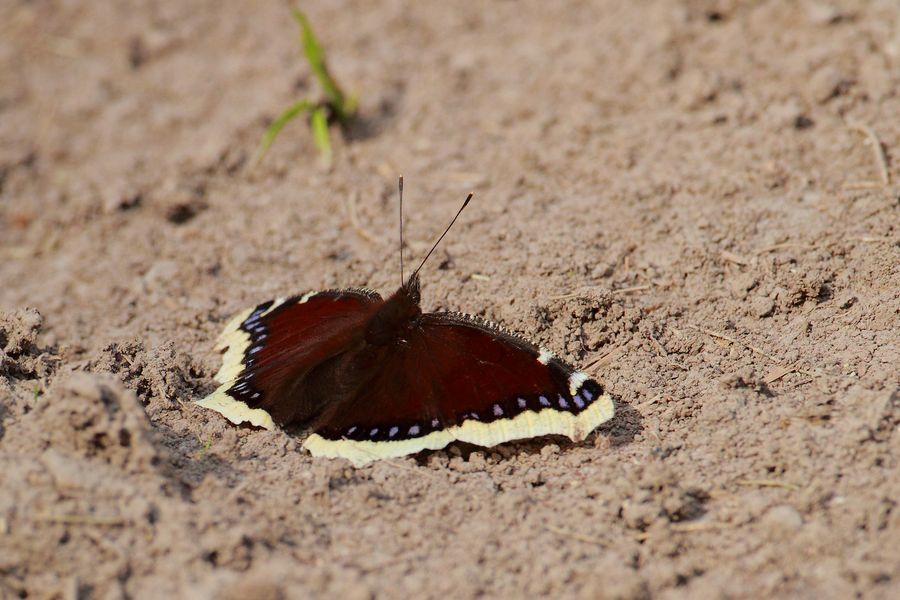
Camberwell Beauty – several were seen in the Hills Photo:Simay Gábor
In the Hortobágy the group´s two main targets were the Great Bustard and the elusive Moustached Warbler. The first was an easy one this time with a flock of 32 individuals, males and females mixed, while to see the warbler we had to visit several breeding sites as the strong wind prevented these small birds from singing from exposed perches. Eventually one bird showed for all of us well, while, along with it many singing Bluethroats, the first Savi´s Warblers, Pygmy Cormorants and Ferruginous Ducks were also seen.
Sakertour team
Early spring activity around our hides
Despite the weather getting warmer, after an unusually long winter, activity is still excellent around our eagle hides, with basically the same range of species, as on a milder winter´s day. White-tailed Eagles still visit regularly, though in smaller number and maybe for a shorter time, like in winter.
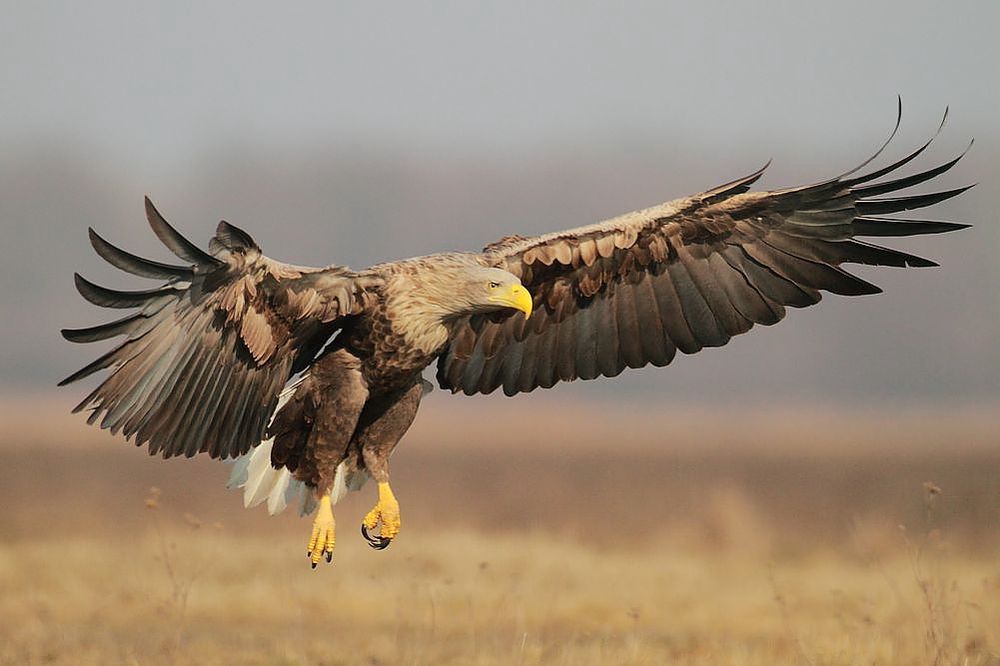
Landing adult White-tailed Eagle Photo: Simay Gábor
It is very exciting to watch and photograph the always fighting gulls, with predominantly Caspians. Though Yellow-legged Gulls also mix with them, while recently an intermedius/graellsii type Lesser Black-backed was also photographed – a scarce visitor to Hungary.
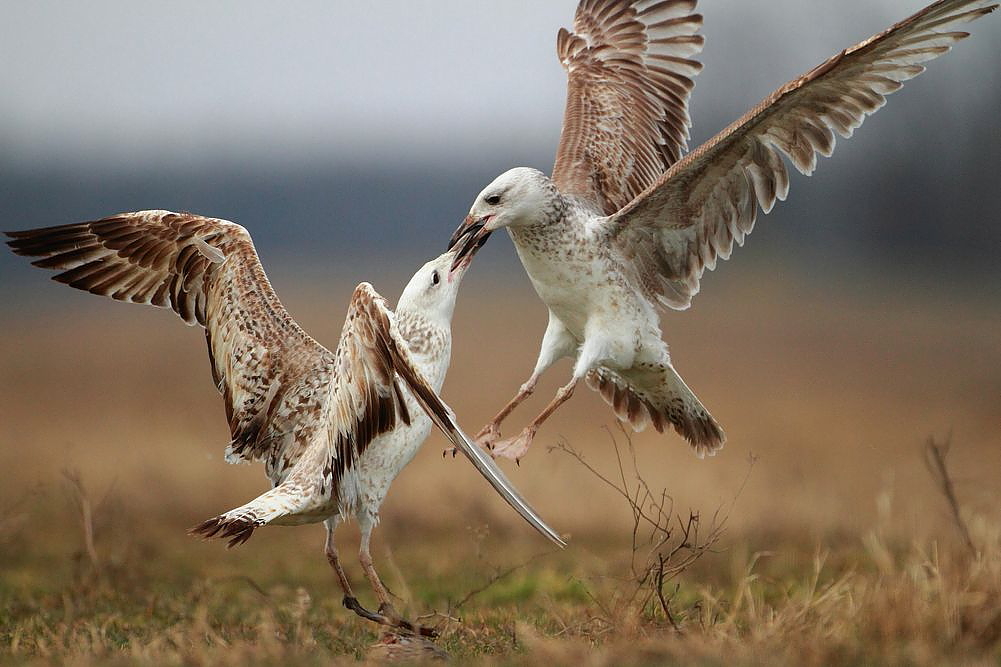
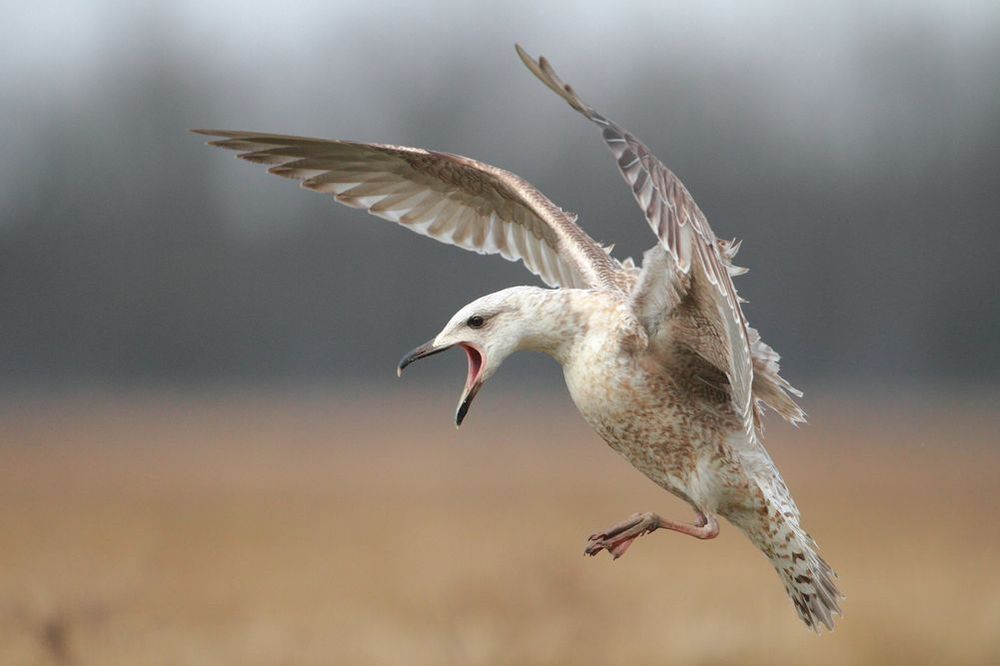
First winter Caspian Gulls Photo: Simay Gábor
In early spring, Greylags occupy their nesting gound and, during the day they may visit the hide´s surrounding to graze the fresh green grass or to drink from the little pools which have remained after the heavy rains of the autumn.
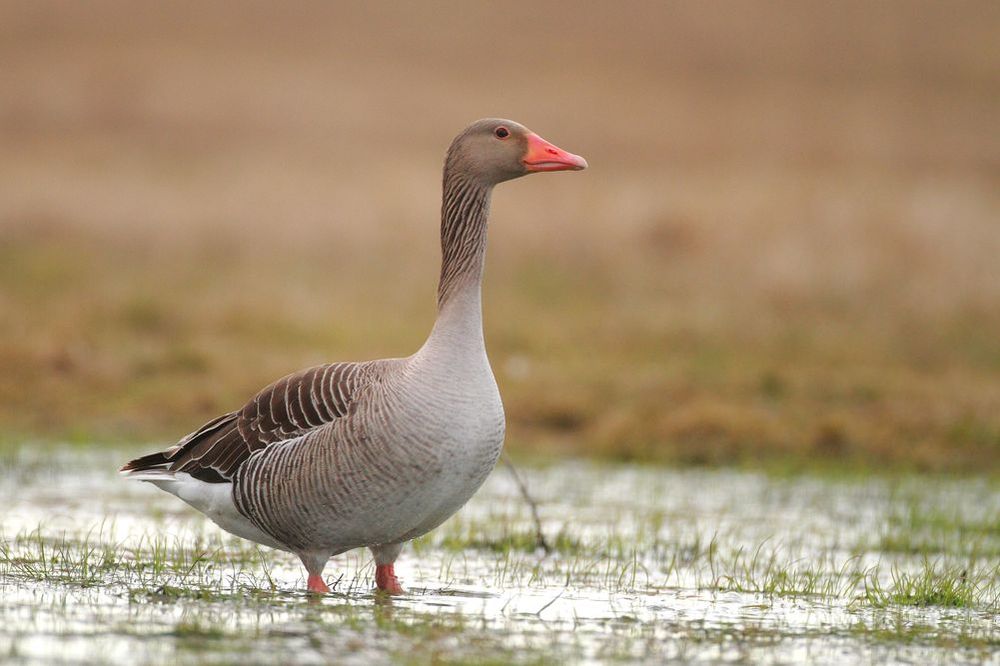
Greylag Goose Photo: Simay Gábor
Sakertour team
Gulls, eagles and buzzards
The last two weeks around our eagle hides were very eventful. Following the exceptionally good December, January was more quiet with the White-tailed Eagles visiting the hides less frequently. In February the activity was/is much better again and now eagles regular visitors plus a few extra photo subjects!
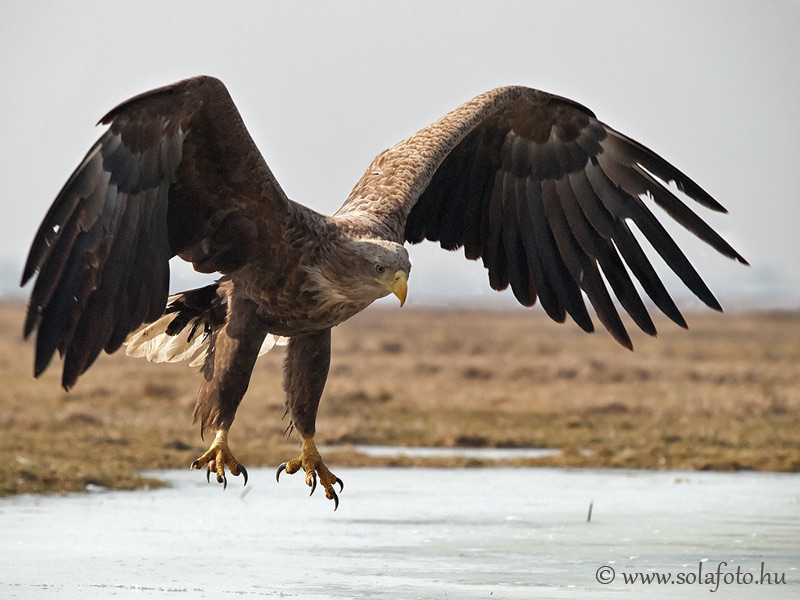
Adult White-tailed Eagle (February 2011) Photo: László Sóti
There was a short period of warm weather when gulls returned to the Hortobágy area and they also visited the hides daily in good numbers. If gulls are around the eagles are less keen to get close but they still do. The gull action photography is something amazing though and our guests certainly enjoyed some excellent moments in the hides!
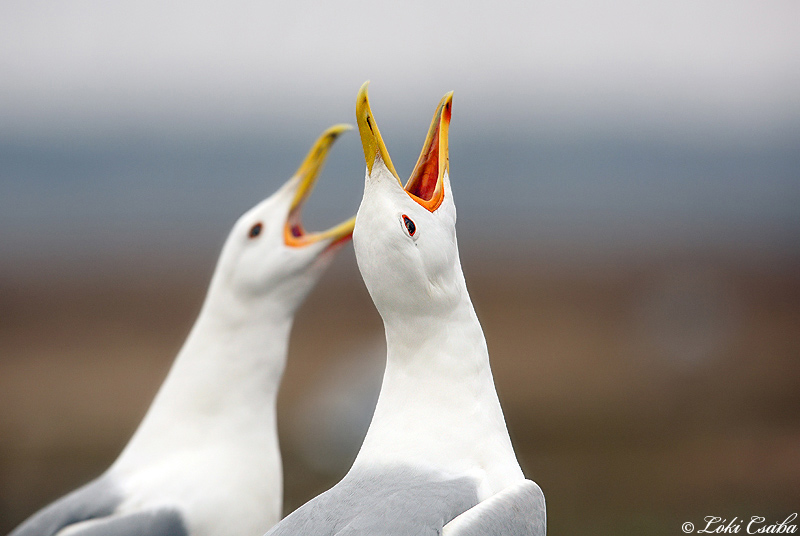
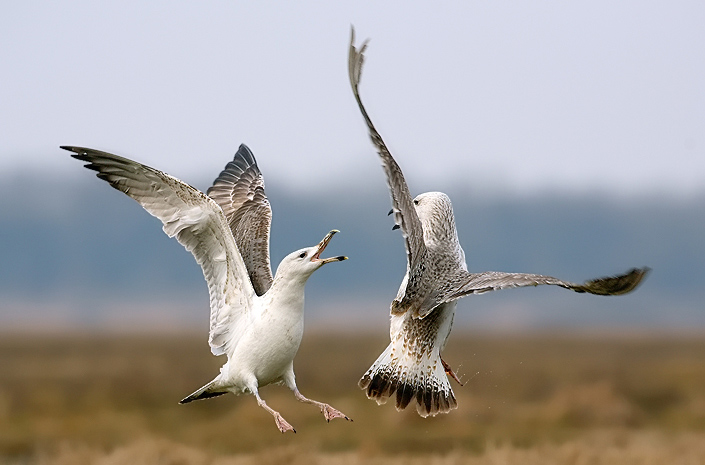
Calling and fighting adult Caspian Gulls (February 2011) Photos: Csaba Lóki
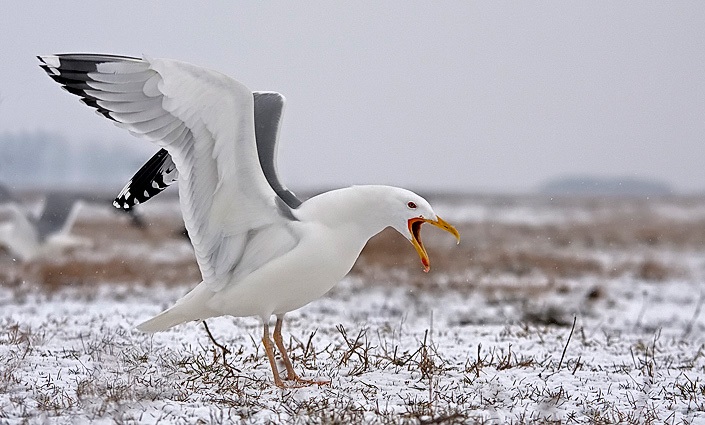
Adult Caspian Gull in front of the hide (February 2011) Photo: Attila Szilágyi
Common Buzzards are regular with up to 11 individuals showing. They were regularly fighting over food when several birds were around thus allowing great photo opportunities. Rarely even the scarce Rough-legged Buzzards visit the area.
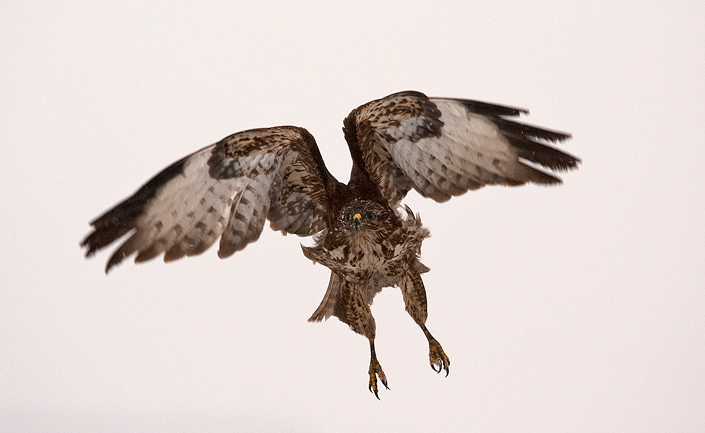
Common Buzzard (February 2011) Photo: Attila Szilágyi
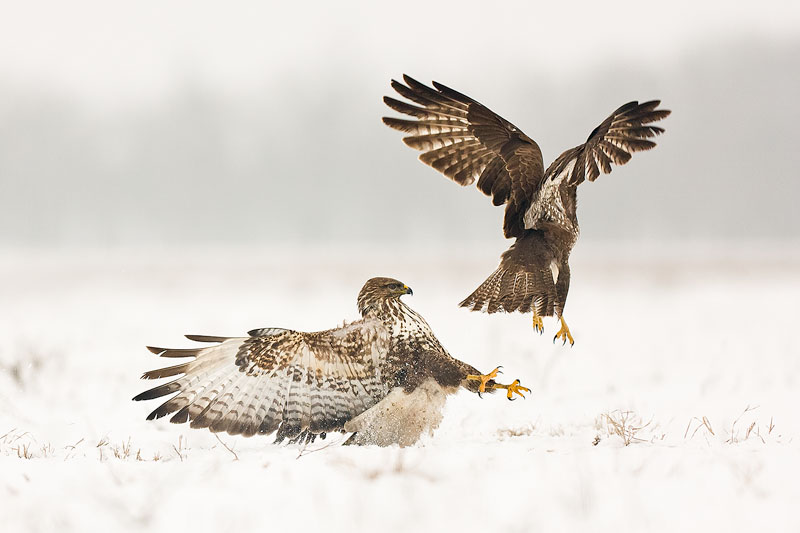
Fighting Common Buzzards (February 2011) Photo: Joan Roca
Sakertour team
Owl nest-boxing 2011
With our friends (Balla Dániel, Molnár Szilvi and Vasas András) the Sakertour team placed out a Ural Owl nest box in the Bihar Mountains in Romania, but near to the Hungarian border, to a location just a little bit more than two houres drive from the Hortobágy. We have a good chance to attract the owls into the nest box, as the surrounding mature beech forest is an excellent habitat for them with several observations from the previous years.
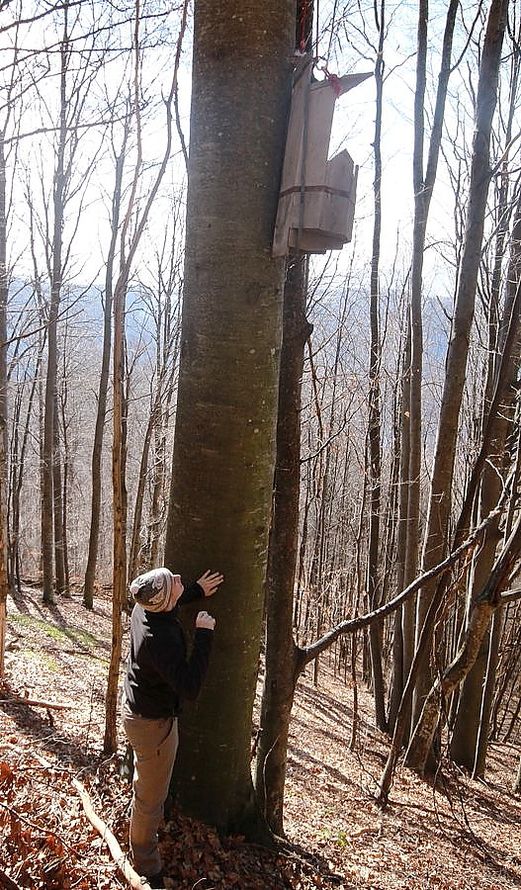
Balla Dániel is helping from the ground
Photo: Gábor Simay
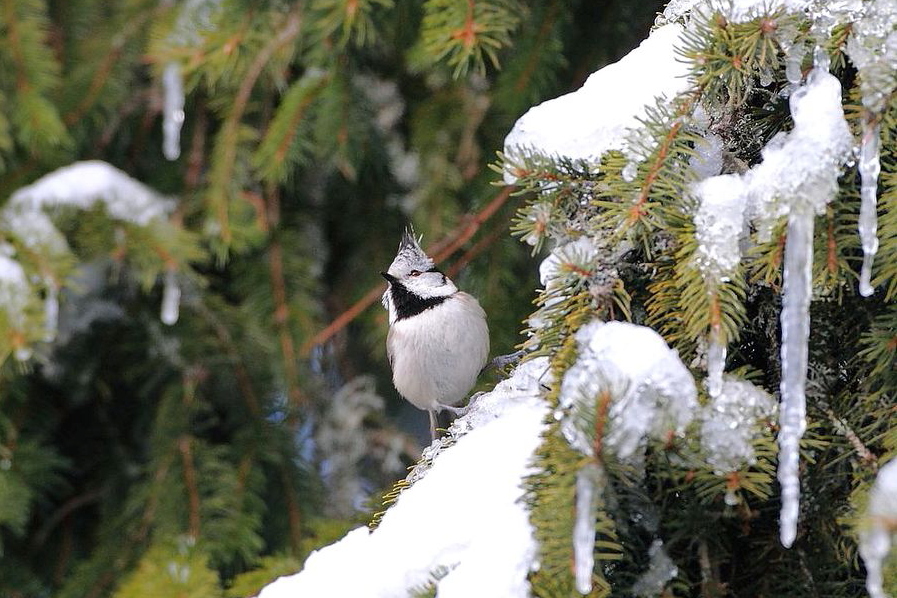
Crested Tits are among the commoner birds in the higher, spruce forest region
Photo: Gábor Simay

The higher montanous areas were still snow covered, and the landscape was beautiful…
Photo: Gábor Simay
Sakertour team
Bird count on the Carpathian lower Danube 2011
We made our annual winter waterbird count on the lower part (Carpathian Basin section) of the River Danube from Orsova to Bazias in Transylvania. This c.130 kilometer stretch of Danube usually holds 25,000-30,000 waterbirds in winter. Numbers also depend on ice cover of the upper Danube sections (mainly in Hungary) as well as the weather generally.
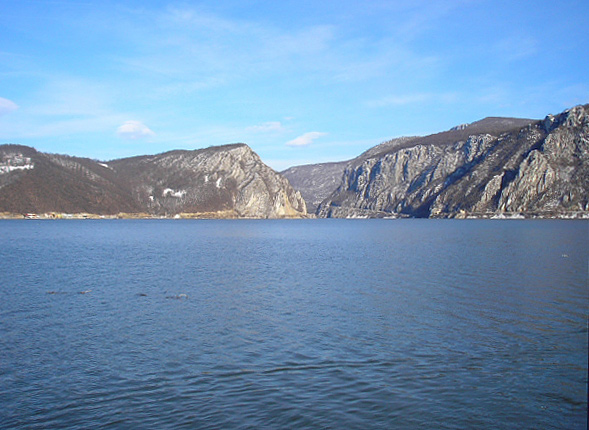
The Kazán-pass along the Danube Photo: Zoltán Petrovics
This year the count was only 18,459 waterbirds, of which the outstanding result was the record number of Smews. We counted a total 2,062 wintering birds of this lovely bird. The only species which was far less numerous as usual was the Coot. We only counted 1542 individuals which barely compares with the 8000+ last year though the water level of the Danube was very high!
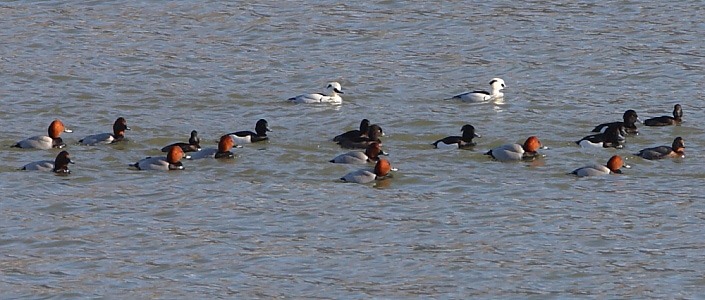
Smews in a mixed diving duck flock along the Danube Photo: János Oláh

Velvet Scoters Photo: Dániel Balla
Other highlights included a Bernacle Goose (very rare bird inTransylvania), 5 Scaup, 3 Velvet Scoters, 7 Red-breasted Mergansers, 47 Goosanders, Sombre Tits and several Cirl Buntings. The latter two species are rare and restricted breeding birds in the Carpathian Basin.
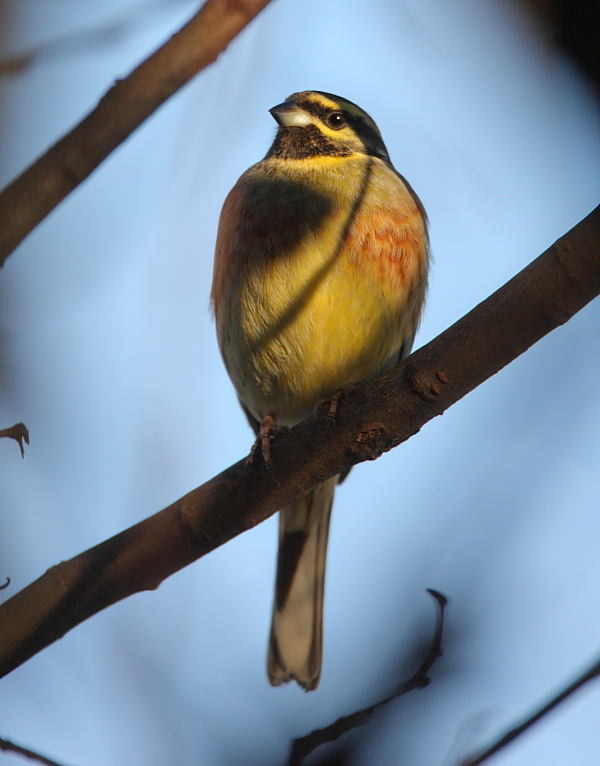
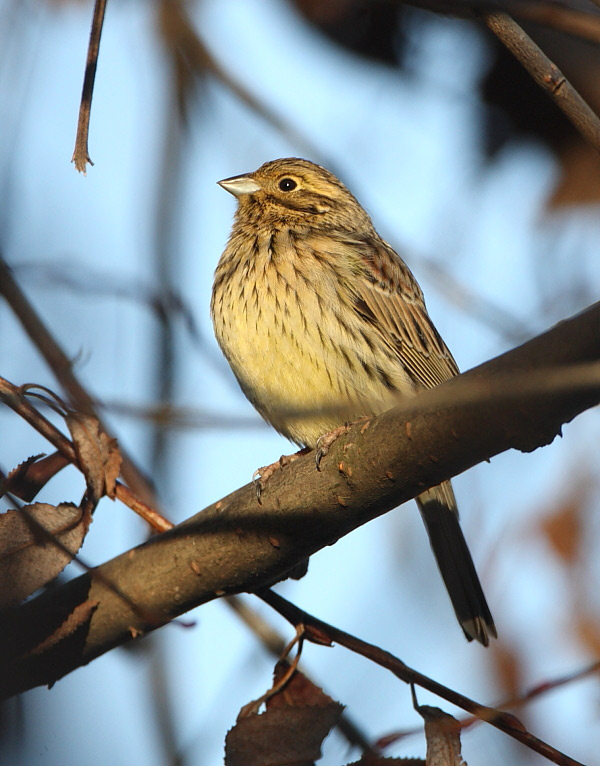
Male and female Cirl Bunting Photos: János Oláh
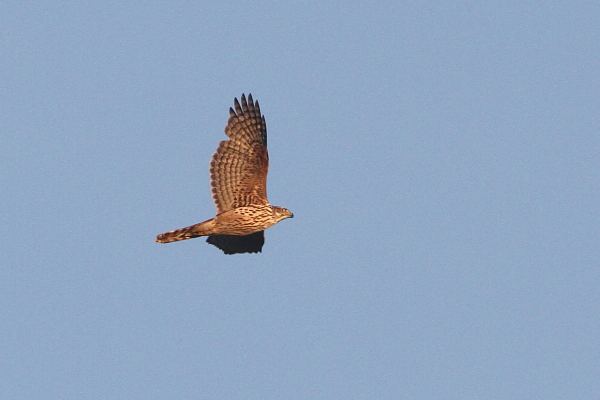
Juvenile Goshawk at Orsova Photo: János Oláh
Sakertour team
Long-eared Owls in January 2011
In addition to White-tailed Eagle photography our guests enjoyed terrific Long-eared Owl moments in January 2011. There are about 120 bird in Balmazújváros and some of them showing perfectly. They are somewhat special in recent days with overnigth temperatures dropping to -10 or even -15C and the owls have variable amount of frost on their feathers.
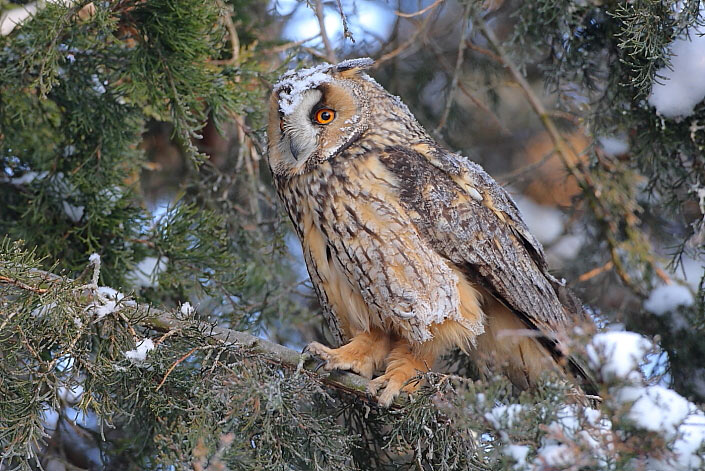
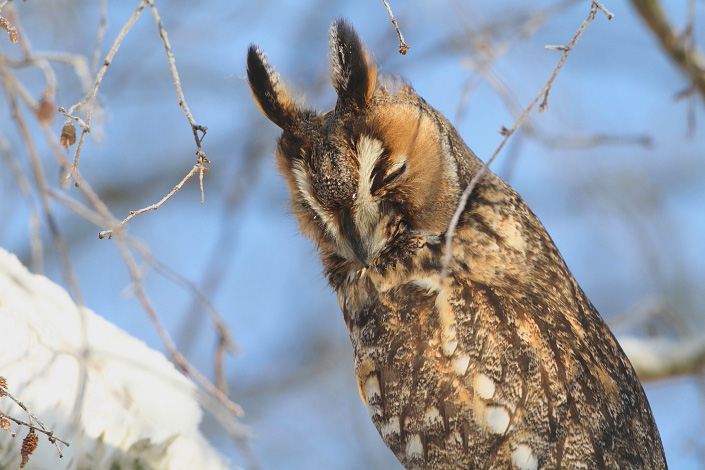
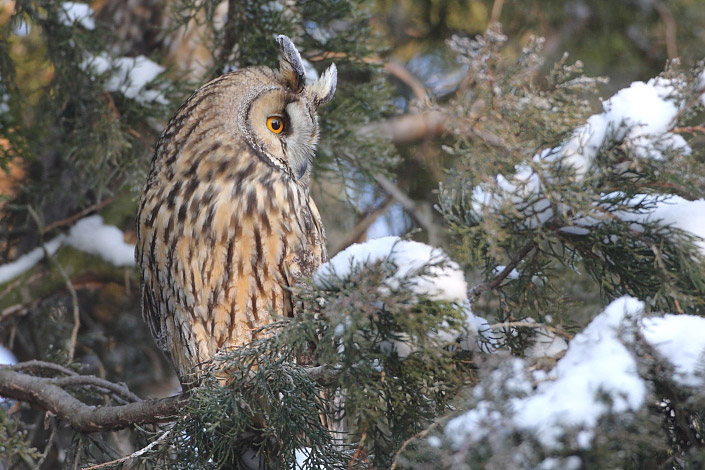
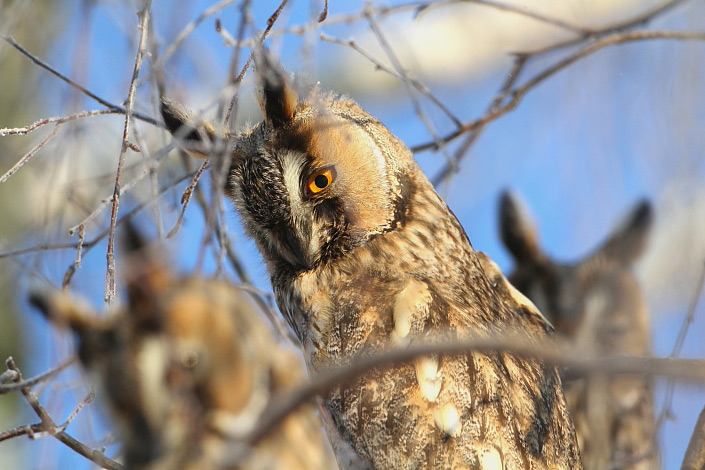
Long-eared Owls in January 2011 Photos: János Oláh
Sakertour team
Hungarian National Eagle Count 2011
The Hungarian Ornithological Society (MME) – http://www.mme.hu/ – made the 8th Hungarian Eagle count in mid January. During this event over 275 observers counted wintering eagles all over Hungary. The most common eagle was White-tailed Eagle with 475 individuals and about 60 of these were in the Hortobágy region! This number in the Hortobágy area was well undercounted because of thick fog throughout the counts (14-15 January). Just 10 days later well over 90 WtE were counted in the Hortobágy area. Second most common was the Eastern Imperial Eagle with 170 individuals seen, followed by one Golden Eagles and three Greater Spotted Eagle.
The activity around the Sakertour eagle hides in the Hortobágy National Park is changing every day. Today we had 3 WtE at one of our hides.
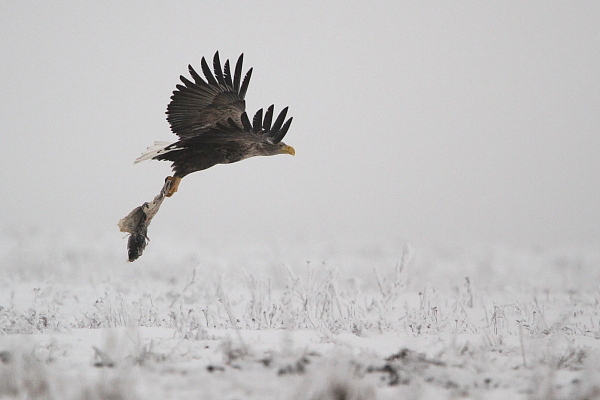
Adult White-tailed Eagle carrying food Photo: János Oláh
Sakertour team
Our partner Terres Oubliées arrived today!
One of our partner tour operator arrived today to the Hortobágy National Park. The Terres Oubliées group main target is Whit-tailed Eagle photography. Hopefully the weather will be good, the forecast is promising with cold winter days and sunshine for the next week with some snow. A definite improvment to the foggy, misty, wet two weeks behind us!
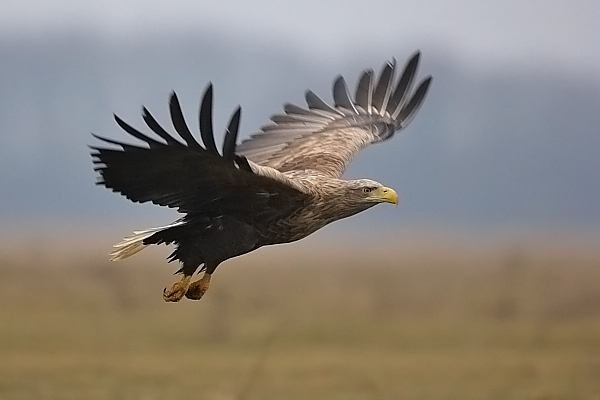
Adult White-tailed Eagle Photo: János Oláh
We will let you know the success of the photo-tour!
Sakertour Team

